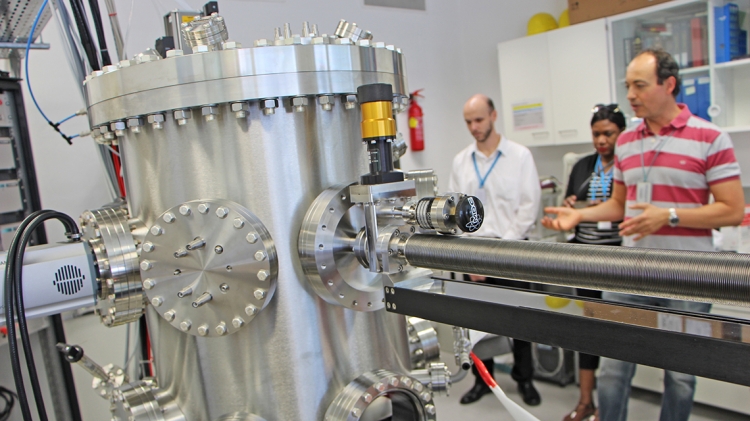At all levels of implementation, the success of the IAEA’s technical cooperation (TC) programme relies on a harmonious marriage between technical aptitude and rigorous cooperation. In order to enhance technical skills in Member States, the TC programme engages in a continuous process of capacity building; and in order to encourage closer collaboration, the TC programme hosts orientation meetings for newly-appointed National Liaison Officers and Assistants, in order to quickly establish the necessary roles, expectations, and channels of communication for counterparts and IAEA staff.
From 22-26 August, 13 recently-appointed NLOs and NLAs from the Latin American and Caribbean region arrived in Vienna for a week-long briefing on the technical cooperation programme and their roles in its implementation. As part of the induction workshop, Member State counterparts received guidance on how best to ensure and maintain the quality and effectiveness of their national programmes, with particular focus paid to understanding the diverse stakeholders, operational procedures, and logistical components involved in ongoing projects.
“Throughout the course of this week, you will learn about the TC Programme cycle and the design process, our procedures for approving participation in TC activities, as well as nuclear applications,” explained Luis Carlos Longoria Gandara, Director of the TC Department’s Division for Latin America and the Caribbean. “I think you will find that this week’s training will set the foundation for a successful partnership with the IAEA,” he continued.
Whereas many of the National Liaison personnel are associated with well-established national programmes, the participation of several newer Member States elicited a need to clarify the fundamentals of the programme. These newer Member States include Antigua and Barbuda, and Barbados, all of which acceded to the IAEA Charter in 2015, and Bahamas, which joined the Agency in 2014. Other participating Member States included Argentina, Chile, Jamaica, Mexico, Panama, and Trinidad and Tobago.
From Fellowships and scientific visits to procurement and shipping processes, IAEA staff members provided a comprehensive synopsis of the technical cooperation programme and how its objectives are realized.
Above and beyond the human resources components of the programme, experts from the various Technical Departments of the IAEA contributed a series of thematic presentations to the induction workshop, explaining in profuse detail the function played by nuclear technologies in addressing agricultural, energy, human health, and water-related challenges. These technical briefings were reinforced by a day-long visit to the IAEA’s Laboratories in Seibersdorf, helping the visiting NLOs and NLAs to make the connection between scientific research and progress in economic development.




